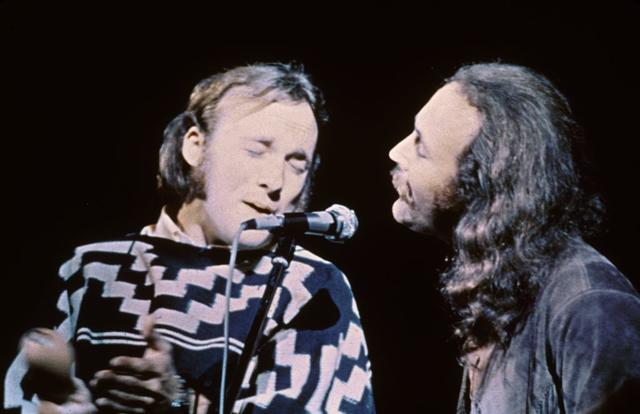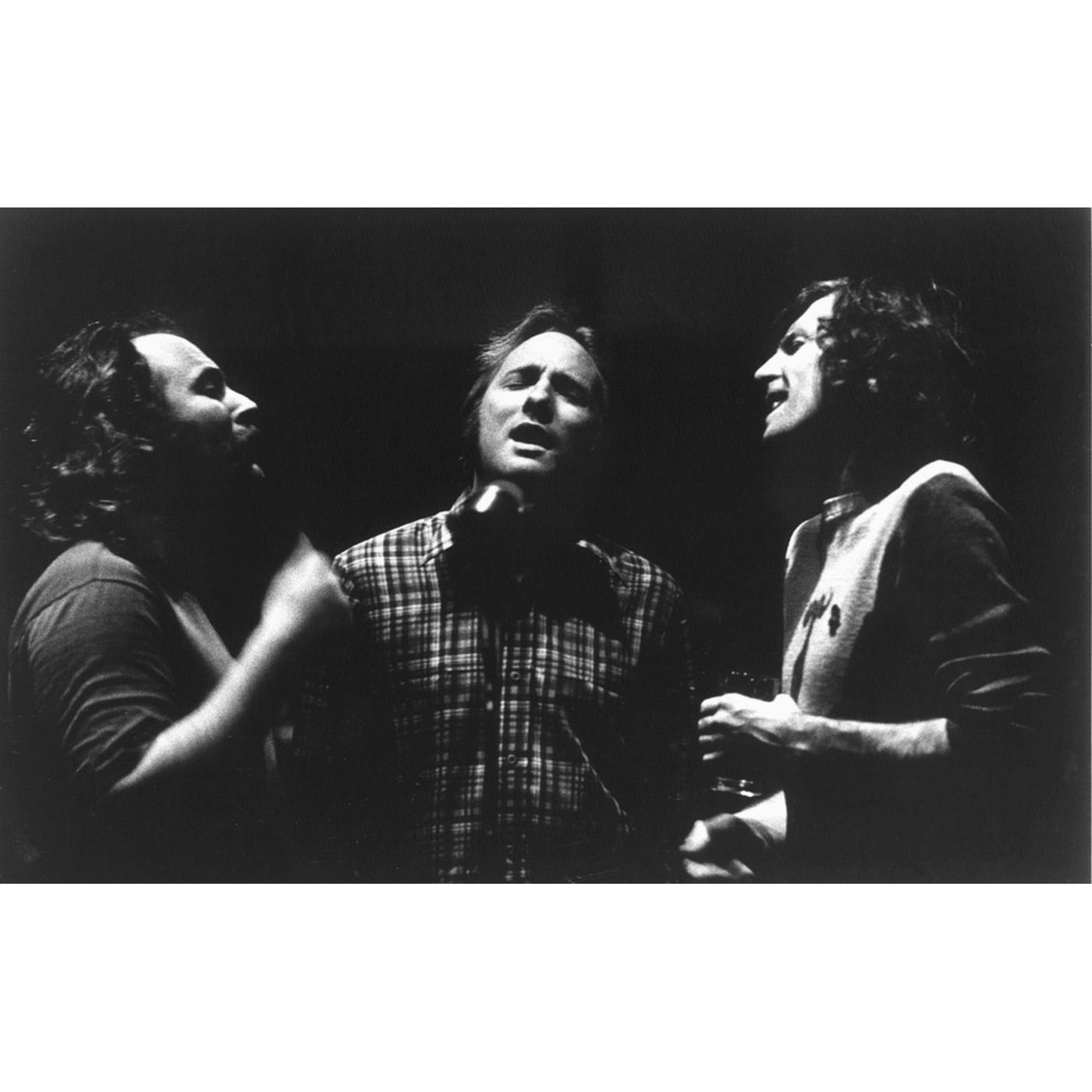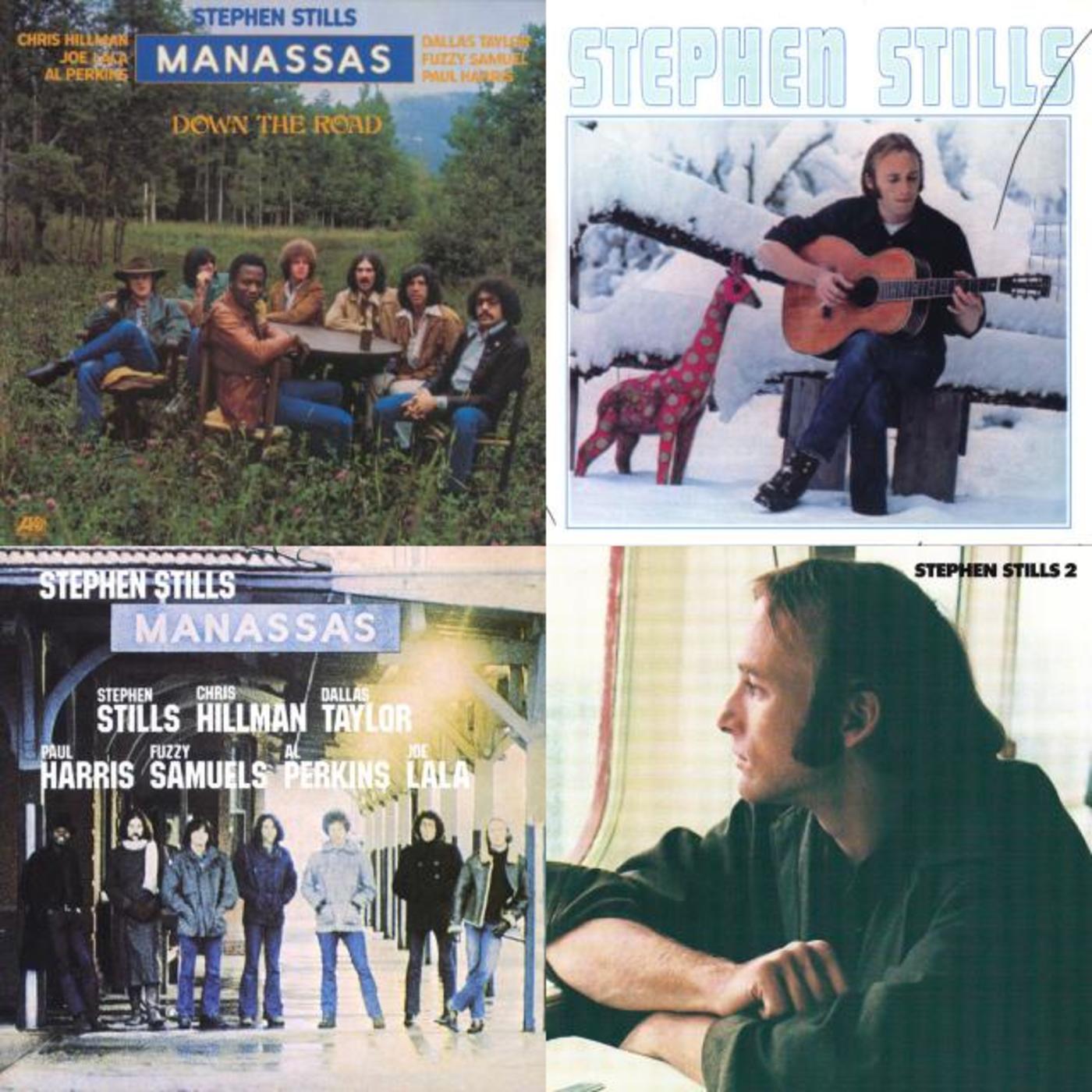August 1969: Crosby, Stills, Nash & Young Debut at Woodstock

By August 17, 1969, on what was scheduled to be the third and final day of the Woodstock Music and Art Fair, things at the inaugural festival in Bethel, New York, had descended into loosely controlled chaos. With hundreds of thousands of music fans overwhelming the site, state governor Nelson Rockefeller threatened to send in 10,000 National Guard troops to shut the whole show down. While local Sullivan County declared a state of emergency, Stewart Air Force Base personnel helped out by air-lifting performers into Woodstock to beat gridlock traffic around the area.
"And it was overwhelming! It was like Blade Runner, like looking down on L.A. in the year 2050," Graham Nash recalled to Rolling Stone in 2019. "It was both primeval and futuristic. And there was a hell of an energy emanating from it. Coming in to land, something went wrong with the rudder of my helicopter, so we came down very heavily, and that was scary. When we got out of the helicopter, we were greeted by John Sebastian. We lit up one and had a party in Sebastian’s tent."
It was 3:30 a.m. on the morning of Monday, August 18, when the highly anticipated Crosby, Stills and Nash finally took the Woodstock stage. The trio's self-titled debut album had been released earlier that year in May 1969, crashing the top 10 to peak at #6 on the Billboard 200, and produced a pair of hit singles: "Marrakesh Express" and "Suite: Judy Blue Eyes."
“This is the second time we’ve ever played in front of people, man,” Stephen Stills famously said to the crowd when he stepped onstage with David Crosby and Graham Nash in front of the sea of Woodstock attendees. “We’re scared s—less!” That fear, the group would later explain, came not from the audience, but from wanting to impress peers including Jimi Hendrix, Sly Stone and Janis Joplin, who were all watching from the wings.
The legendary performance was one for the ages, with drummer Dallas Taylor and young bassist, backing up the trio who were joined onstage by a fourth performer: Neil Young. Young had been added to the group for a U.S. tour, which had just kicked off Aug. 16, 1969, at the Auditorium Theatre in Chicago. The opening act: Joni Mitchell. The Woodstock audience, however, was not expecting to see Young, and the added energy sparked the famous show. Equally as a famous was a cranky Young refusing to be filmed during the proceedings.
"I think Neil [Young] was nervous about playing with us," Nash pondered. "Neil’s not in control when he’s with us — not in the way he likes to be. And so I think that made him a little nervous. I don’t really know why he didn’t choose to be in the movie. To this day, a lot of people think that it was just CSN that did Woodstock, but in fact it was the four of us."
For his part, Young displayed a been-there-done-that attitude when asked about Woodstock by Howard Stern in 2014 (via Consequence of Sound): “I didn’t like the fucking cameras, they didn’t have to be on stage,” he said. “They’re cameras, ‘Hello! Use your zoom, dickhead!” As for not appearing in any of the Woodstock footage: “Who cares? It doesn’t matter, I was there, I saw it. Who gives a shit? I couldn’t care less.”
"The next day, back in New York, it was like, 'Did that really happen? Was it just a giant acid flash or a hallucination?,' Nash explained. "It was only later that I began putting it into perspective. It was a coming of age, a flowering of a generation of kids who decided they could take responsibility for their own lives and affect their destiny, that they could coexist with a few hundred thousand other people and not get into violent scenes and have a great time.
"A lot of us in the years since have shied away from the Woodstock myth. It’s like, if you were at Woodstock and you’re enthused about it, then you’re a ’69 hippie, you’re to be discounted," Nash continued. "But there’ll never be anything as good as Woodstock, because it was the first and the best. I don’t think you can re-create that. There was a certain glow about the Sixties, a certain naiveté and exploration, an excitement for the future that doesn’t exist anymore."
Watch the legendary interview with Joni Mitchell, David Crosby, Joni Mitchell and the Jefferson Airplane on The Dick Cavett Show the day after Woodstock ended below.


